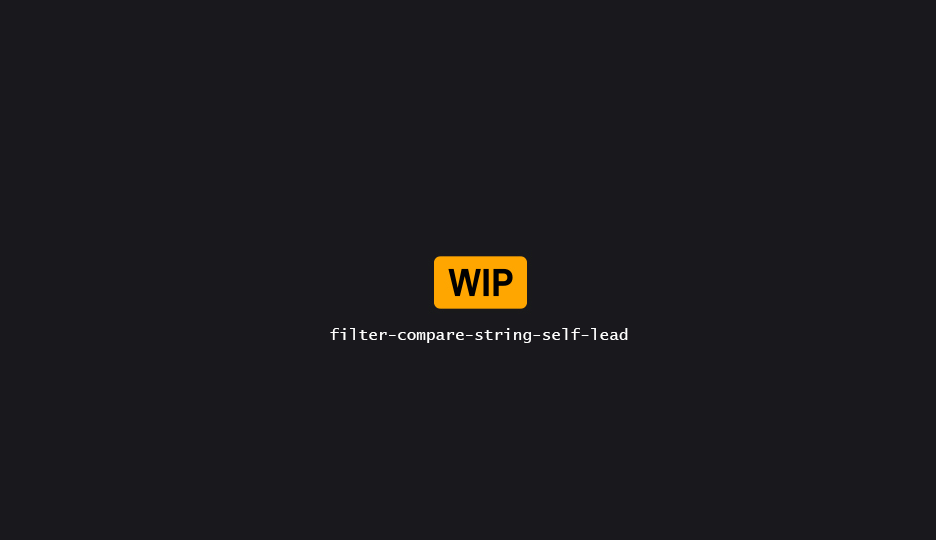A single filter definition
Table of content
The Self Compare (String) compares the point’ value of a single attribute against that same attribute at another index.

Properties
| Property | Description |
|---|---|
| Operand A | |
| Operand A | The attribute to read compared values from. |
| Comparison | |
| Comparison | How to compare A against B. See Numeric comparisons. |
| Tolerance | Equality tolerance for near-value comparisons. |
| Index | |
| Index Mode | Choose how to process the Index value as either a Pick (specific index), or an Offset applied to the currently tested point’ index. |
| Compare Against | Type of values for the Index. Can be a per-point Attribute, or an easily overridable Constant. |
| Index (Constant or Attribute) | Value to use as Index/Offset. |

Index Safety
The index safety property controls how invalid/out of bounds input values are handled.
| Safety method | |
| Ignore | Invalid indices will be ignored and won’t be processed further. |
| Tile | Index is tiled (wrapped around) the context’ valid min/max range. |
| Clamp | Index is clamped between the context’ valid min/max range. |
| Yoyo | Index bounces back and forth between the context’ valid min/max range. |
Comparison modes
| Comparison | Data |
|---|---|
| == | Strictly equal. |
| != | Strictly not equal. |
| == (Length) | String lengths are strictly equal. |
| != (Length) | String lengths are strictly not equal. |
| >= (Length) | String length is equal or greater. |
| <= (Length) | String lengths are is equal or smaller. |
| > (Length) | String lengths is strictly greater. |
| < (Length) | String lengths is Strictly smaller. |
| > (Locale) | String locale is strictly greater. In alphabetical order. (Z is greater than A) |
| < (Locale) | String locale is strictly smaller. In alphabetical order. (A is smaller than Z) |
| Contains | Check if string is contained in another one. Useful if you have solid naming conventions. |
| Starts With | Check if the string starts with another one. Useful for prefixes. |
| Ends With | Check if the string ends with another one. Useful for suffixes. |